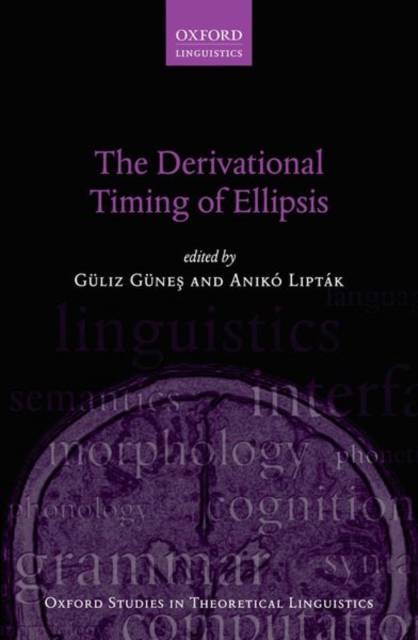
- Retrait gratuit dans votre magasin Club
- 7.000.000 titres dans notre catalogue
- Payer en toute sécurité
- Toujours un magasin près de chez vous
- Retrait gratuit dans votre magasin Club
- 7.000.000 titres dans notre catalogue
- Payer en toute sécurité
- Toujours un magasin près de chez vous
The Derivational Timing of Ellipsis
56,45 €
+ 112 points
Description
This volume explores the nature of ellipsis, the core phenomenon that results in various types of omission in sentences. The chapters adopt the popular 'silent structure' accounts of ellipsis, and investigate the question of when linguistic material becomes silenced during the derivation and realization of syntactic structure. The book begins with a detailed introduction from the editors that outlines the current generative syntactic approaches to the derivational timing of ellipsis. In the chapters that follow, internationally-recognized experts in the field address key topics including structure building, the architecture of grammar, the interaction of distinct modules with syntax, the order of operations in the post-syntactic component, and constraints on binding relations. The authors also present novel arguments for and against the derivational approaches to ellipsis, the licensing of ellipsis, and phonological constraints on elliptical sentences. The findings, based on data from English and other languages such as Armenian, Italo-Romance, Ossetic, Spanish, Taiwanese, and Turkish, facilitate a deeper understanding of the interaction between syntax and the neighbouring modules in the formation of elliptical utterances.
Spécifications
Parties prenantes
- Editeur:
Contenu
- Nombre de pages :
- 352
- Langue:
- Anglais
- Collection :
Caractéristiques
- EAN:
- 9780198849506
- Date de parution :
- 30-06-22
- Format:
- Livre broché
- Format numérique:
- Trade paperback (VS)
- Dimensions :
- 158 mm x 237 mm
- Poids :
- 553 g






